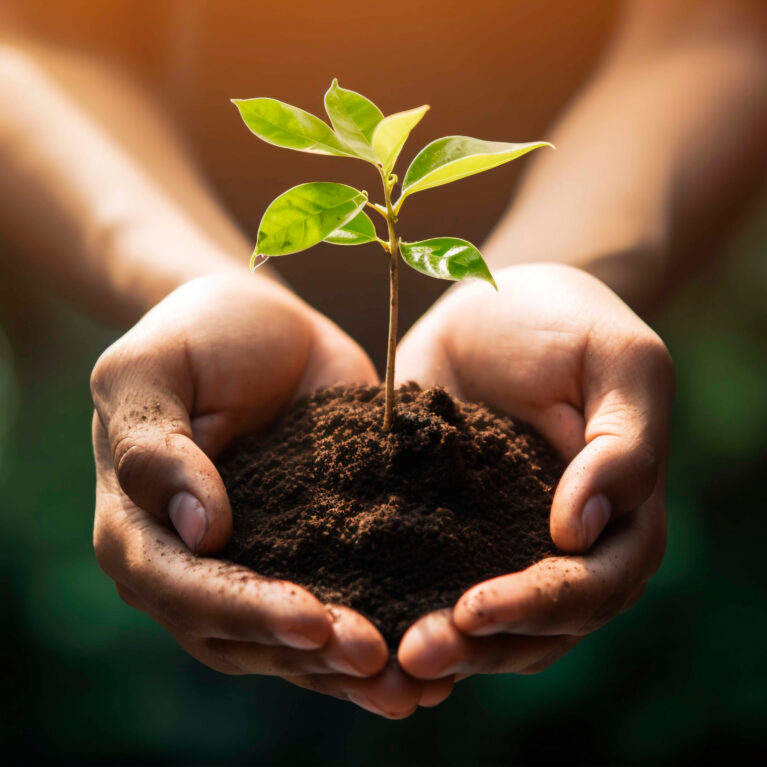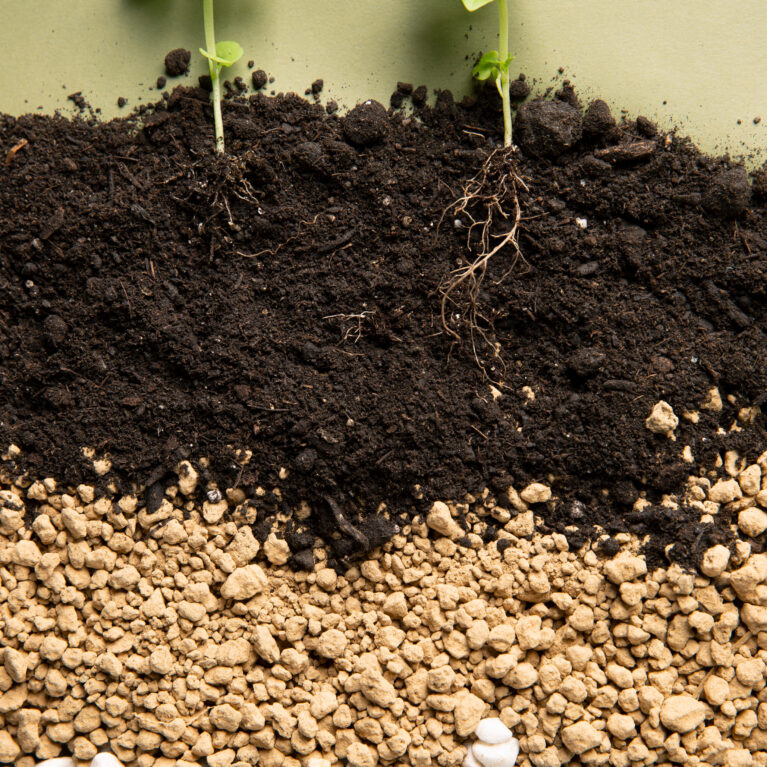Knowledge
How can we take care of soil quality and avoid soil pollution? People really have a lot of options in this area.

Soil function
Soil has extremely important functions in terrestrial ecosystems, being a key component of the natural environment. Soil is a complex material, consisting mainly of minerals, organic matter, water and air.
Its structure and composition varies and depends on many factors, such as climate, vegetation type, time and the impact of human activity. Sounds difficult and a little complicated? You'll understand everything in no time!
Soil contamination
One of the most serious problems is soil pollution. Sources of pollution include excessive use of pesticides and fertilisers in agriculture, industrial emissions (including heavy metals), inadequate handling of urban and industrial waste, and soil erosion and degradation due to improper use of soil.
The effects of soil contamination include reduced agricultural yields, loss of biodiversity and risks to human health from toxic substances.

Soil and groundwater protection
One of the key functions of soil is its role as a filter for rainwater. Deeply infiltrating rainwater, rather than flowing directly over the surface, is gradually filtered through the soil layers.
Through this process, chemicals such as pesticides and fertilisers are partially retained and broken down by micro-organisms before they can reach groundwater. Protecting this soil function is key to ensuring high quality drinking water and aquatic ecosystems.
Conservation and sustainable use of the soil are therefore very important for the reducing greenhouse gas emissions and climate protection.
Soil plays an important role in the carbon cycle as a store of organic carbon. Its destruction can lead to the release of carbon dioxide into the atmosphere, which in turn contributes to global warming.
How do we write about nature and nature conservation?
-
Soil minerals
These are fine particles, such as sand, clay and silt, which provide plants with essential nutrients such as nitrogen, phosphorus and potassium.
-
Organic matter
It is plant and animal residues and organic matter that provide plants with nutrients and support the soil structure.
-
Water
It is essential for the transport of nutrients to plant roots and their growth.
-
Air
Plant roots need air to breathe and soil micro-organisms use it to break down organic matter into plant nutrients.
Important for food and health
As you can see, soil is an extremely valuable natural resource whose protection and proper management are essential for ecosystem health, food production and human health. Promoting healthy and fertile soils is fundamental for sustainable development and for future generations.
-
Healthy ecosystems
-
Food production
-
Human health
Soil as a source of life
Soil is not only a place where plants find food, it is also home to many different creatures. Bacteria and fungi are microscopic creatures that help break down old plants into food for new plants. This is very important, because without these microscopic creatures the soil would not be able to maintain its shape and health.
